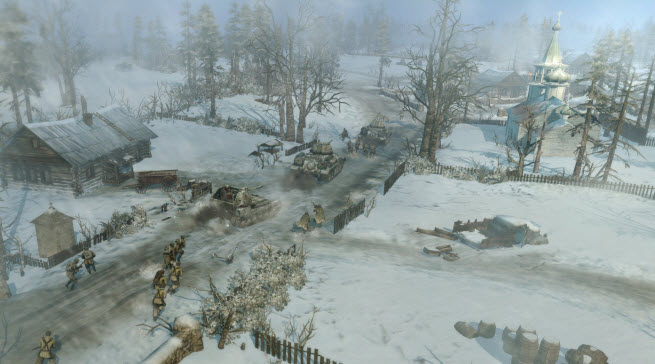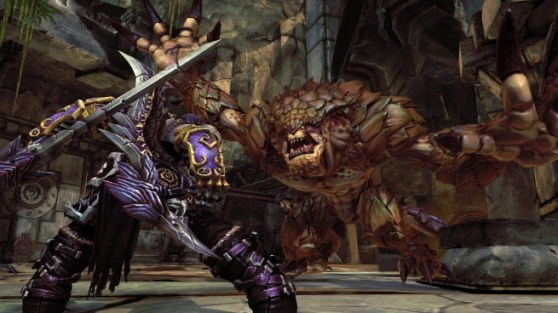GamesBeat: Have you decided what to do with the studio?
Farrell: Yes, in fact I got an email this morning from Debbie Adelsberg. We’re doing a job fair there. There are several studios and game companies, including us, interviewing. It’s a rather small studio. There were 44 people there, some really talented people we hope will take positions with us at some of our other studios. We’re actively seeking to place them in new positions. It’s a good team. I hate to see those guys go. We’re doing what we can to make sure that they land on their feet.
GamesBeat: That’s got to be tough. It seems like you have to act fast.
Farrell: Well, the business is changing. You asked me before about my position. My job is to make the tough calls. I take it very seriously when I have to make these tough calls. I’m personally close to the studio heads and some of those key people. You should probably talk to them. They realize the difficulty of this decision, and they respect it. It’s not good for them, but I have a great amount of respect for Scott and his team there. Again, it was a tough call, but that comes with the territory.
GamesBeat: Do you feel like you have enough of a space, still, for studios? Enough to do whatever you need to please the investor base?
Farrell: The emphatic answer is yes. Before Jason Rubin joined us, I had asked him, and he agreed, to visit all the studios, make an assessment. I wanted to understand what we had. I wish he were here because it’s better for him to speak for himself than me speaking for him, but I think he’s quoted in a few other things….
We have a tremendous amount of talent in our four studios. We could talk, if you’d like, individually about what we think of their positioning. Studios with track records, real talent, and the ability to make really good games. We also have some of the best externals working for us. Metro is an external, too. Crytek is building our next version of Homefront. Pretty soon, we’ll be talking more about the game that Turtle Rock, the creators of Left 4 Dead, are doing for us. So we have a strong internal team, and I think with a guy like Jason who is a respected industry veteran who has made and built great franchises, I think we can continue to attract both internal and external talent.
GamesBeat: I guess the environment around you seems like it’s still getting tough — or tougher. The sales are not so great for the whole industry. And the investment that everybody else seems to be making is doubling or tripling down. Any game you do will have to have more resources.
Farrell: That’s already happened in this cycle, so I would argue that that’s not particularly new news. In every cycle, the bar gets raised, and again, look at Saints Row: The Third. We announced four and a quarter million units sold, and we’re still at full price. That’s going to go to five, six, seven million units as we bring the price down. So we can compete in that world.
Again, if Jason were here, his point of view would be similar. He has some ideas about how we could compete even more effectively with those teams. But again, there will be some hundred-million-dollar budget games, and that’s not where we intend to compete. We can still compete very aggressively with the talent in our studios. Again, the accolades that Darksiders II is getting, it’s just a well-made game built on existing technology, a great storyline, great gameplay. Gamers like that. They don’t ask us what the production budget was.
GamesBeat: Are you also getting ready for next-gen at this point?
Farrell: Yeah. I’m not at liberty to talk about it, but what we can say we said in our last conference call. Unlike the THQ of old, based on our portfolio then with a lot of kids titles, we would wait to get on the newer platforms. Given our position in the core market now, you will see us much more aggressive at or near launch of new hardware when it occurs.
GamesBeat: Jason’s a pretty heavy hitter. Do you at some point view this as a succession strategy?
Farrell: I think it’s every CEO’s job to make sure that he has a great team around him that can step in the event of any kind of change. So yeah, I think that’s certainly a potential. But I can’t speak for the board in that regard. His job right now is really clear. Get the studios energized around making great games and help lead the company into the changes that are coming with business models digitally.
GamesBeat: Have we covered all the headlines now?
Farrell: [Laughs] I’ve been talking for three days. As for the UFC deal, EA drove the timing of the announcement. We were hoping to get the deal done because as soon as the deal gets done, we get our money, right? EA wanted an E3 announcement, so that rumor that we tried to bury our bad news at E3 just made me chuckle. Again, you’ve known us a long time. When I hear things like that, and the words I saw in the headline were…. I don’t even know who it was, but “allegations.” I mean, “allegations”? About a press release? Are you joking? We put a press release out.
It’s gotten silly. The negativity around THQ, I think, has become a little bit overblown. Again, so my attitude is somebody’s going to write the first story about how things have changed here. Internally, people know it. I’m not sure the rest of the world knows it yet. We have a lot to prove. But some people are going to sit up and take notice that things have changed.
GamesBeat: So you had a couple of people leave and a couple come in. Danny [Bilson] has a legacy. How do you view that at this point?
Farrell: Danny was a great creative. And he did a lot of great things at this company in terms of really helping lead us in this transition to core. We really appreciate that.
If you look at Jason, Jason has proven track record on a number of levels. He’s well-respected in the game community broadly. It shows that we’re deeply committed to doing the right thing, not change for change’s sake but real change to drive the strategy. It shows how committed we, myself, the board, everybody internally is, and again, Danny did a lot of great things for the company and we thank him, but I think Jason’s vision, track record, and abilities speak for themselves.
GamesBeat: He has had bigger hits over his career. That seems to be clear here. Under Danny, you did successfully shift into core games, but each one of them was not what you would call a mega-hit. So they were good hits. They justified sequels, but they didn’t break out.
Farrell: Yeah. You know, frankly, our record was good, trying to get into the core business, but not good enough. It’s a competitive industry, we have to compete with the best, and that takes the best talent.
GamesBeat: Does that at least suggest, then, that one of Jason’s jobs is to come up with new intellectual property?
Farrell: He’s done that before, and as you know, it’s not the number of IPs. There are a lot of things in our pipeline. Remember, Jason looked at everything in the internal and external pipeline before he came on board, and he saw a lot of exciting things. I wish he were here to tell you himself.
GamesBeat: If there is maybe a criticism in hindsight, it might be that there were too many times when you did a sequel to a game, like Red Faction or uDraw, when you should have moved on to something better?
Farrell: We completely agree. We’ve said that — that we did not focus our core portfolio enough. And we held on to the kids business too long. That said, again, look around you, you don’t have to take my word for it. I think we’ve solved both of those problems.
VentureBeat's mission is to be a digital town square for technical decision-makers to gain knowledge about transformative enterprise technology and transact. Learn More



